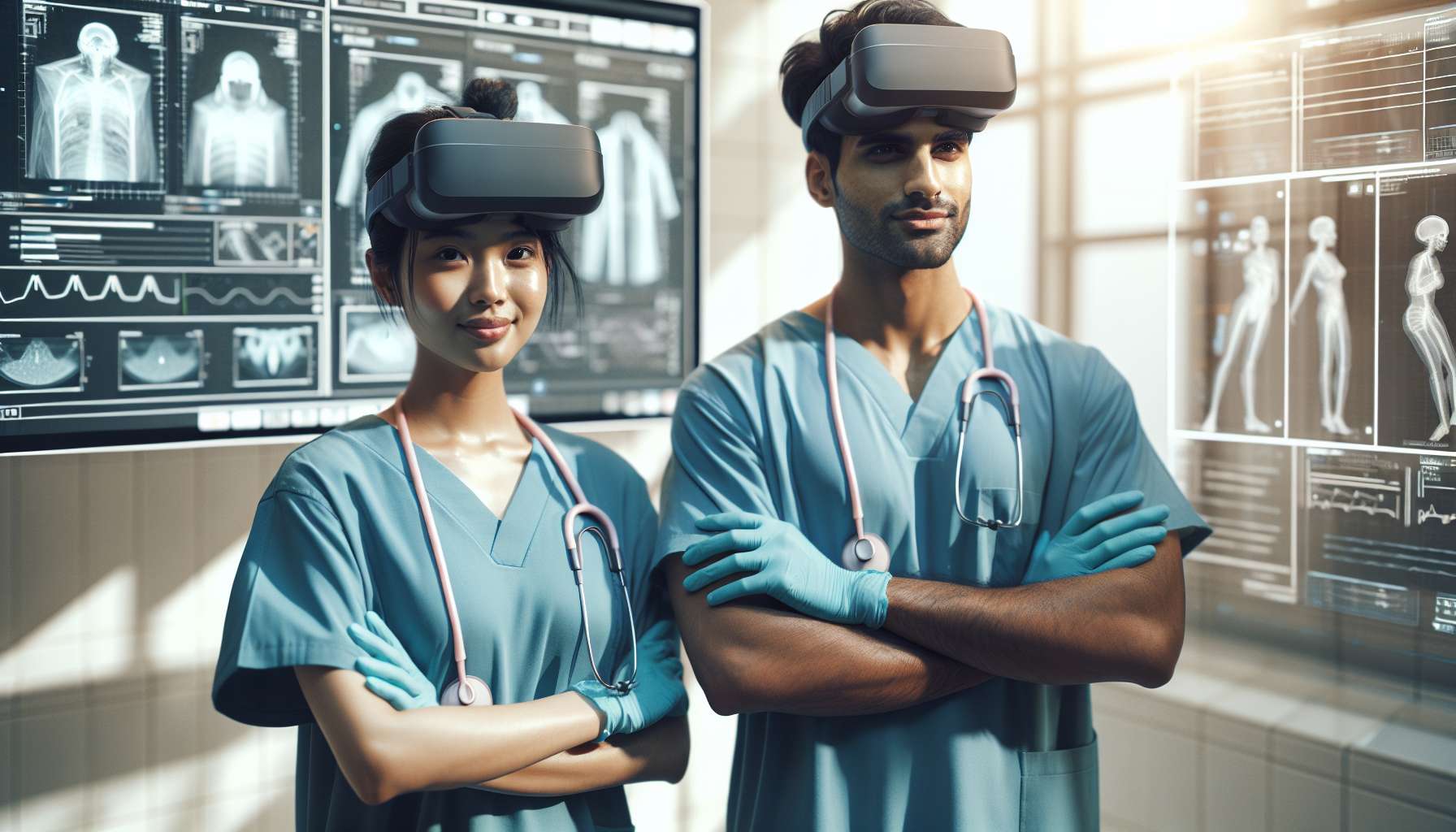Unlocking the Potential: The Crucial Role of AR in Healthcare
Augmented Reality (AR) has emerged as a game-changing technology in various industries, and one sector that is reaping its benefits is healthcare. With its ability to overlay digital information onto the real world, AR is transforming the way medical professionals diagnose, treat, and educate patients. In this article, we will explore the importance of AR in modern healthcare and how it is revolutionizing the industry.
Enhanced Visualization and Training
One of the key advantages of AR in healthcare is its ability to provide enhanced visualization. Surgeons can now use AR headsets or smart glasses to overlay patient data, such as CT scans or X-rays, directly onto the patient’s body during surgery. This real-time visualization allows for more precise and accurate procedures, reducing the risk of errors and improving patient outcomes.
AR also plays a crucial role in medical training. Medical students can now practice complex procedures in a simulated environment using AR, providing a safe and immersive learning experience. By interacting with virtual patients and medical equipment, students can gain practical skills and confidence before entering the operating room.
Improved Patient Education and Engagement
AR is transforming patient education by making complex medical information more accessible and understandable. With AR applications, healthcare providers can create interactive 3D models of organs or medical conditions, allowing patients to visualize and comprehend their diagnosis and treatment options better. This visual representation enhances patient engagement and empowers them to make informed decisions about their healthcare.
Furthermore, AR can be used to deliver personalized instructions and guidance to patients. For example, AR-enabled mobile apps can provide step-by-step instructions for taking medication or performing at-home medical procedures. This technology ensures patients follow the correct procedures, leading to better treatment adherence and improved overall health outcomes.
Remote Assistance and Telemedicine
AR is revolutionizing remote healthcare delivery by enabling real-time collaboration and remote assistance. Through AR-enabled devices, healthcare professionals can provide virtual guidance to colleagues or even patients located in different geographical locations. This technology is particularly valuable in emergency situations where immediate expert advice is crucial.
Telemedicine, which has gained significant traction in recent years, is also benefiting from AR. With AR, doctors can conduct virtual consultations, examine patients remotely, and even perform minor procedures through robotic assistance. This not only improves access to healthcare, especially in rural or underserved areas, but also reduces the burden on healthcare facilities and enhances overall efficiency.
The Future of Healthcare with AR
The potential of AR in healthcare is vast and continues to expand. As the technology evolves, we can expect to see even more innovative applications. For instance, AR could be used to assist in the early detection of diseases by analyzing subtle changes in a patient’s body. It could also revolutionize rehabilitation by providing interactive exercises and real-time feedback to patients.
Moreover, the integration of AR with artificial intelligence (AI) holds immense promise. AI-powered AR systems can analyze vast amounts of medical data, provide real-time insights, and assist healthcare professionals in making accurate diagnoses and treatment decisions. This combination of AR and AI has the potential to revolutionize personalized medicine and improve patient outcomes on a global scale.
In conclusion, AR is playing a crucial role in modern healthcare by enhancing visualization, improving patient education and engagement, enabling remote assistance, and paving the way for future advancements. As the technology continues to evolve, it is essential for healthcare professionals and organizations to embrace AR and explore its potential to transform patient care and outcomes.





